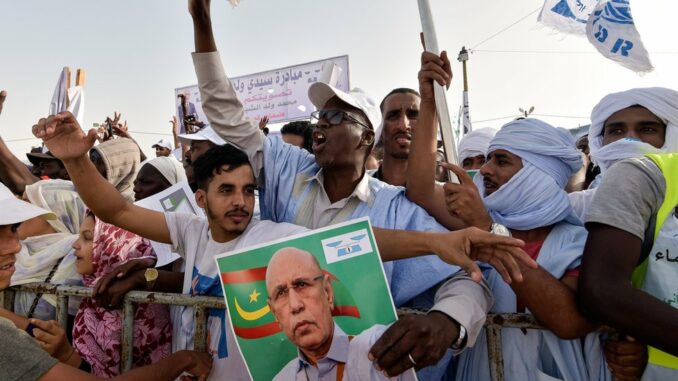
Mauritania, a strategically important West African nation, is heading to the polls with nearly 2 million voters set to cast their ballots. The election unfolds against a backdrop of regional instability and pressing economic concerns.
Incumbent President Mohamed Ould Ghazouani, a former army chief who came to power in 2019, is widely expected to secure a second term. As the current African Union president, Ghazouani has positioned Mauritania as a key Western ally in combating extremism and curbing migration in the volatile Sahel region.
The election features seven candidates, including notable anti-slavery activist Biram Dah Abeid. While Mauritania boasts relative stability compared to its coup-plagued neighbors, it grapples with significant challenges. Despite abundant natural resources, nearly 60% of the population lives in poverty, and the country faces criticism for ongoing human rights abuses, particularly the persistence of slavery.
Ghazouani’s campaign emphasizes security commitments, a message aimed at both regional players and potential threats. However, opposition candidates accuse his government of corruption and mismanagement.
As Mauritania navigates this crucial election, it must balance its role as a regional stabilizer with addressing internal issues of poverty, human rights, and the lingering specter of slavery. The outcome will likely shape the country’s trajectory and its relationships with Western partners in the coming years.
